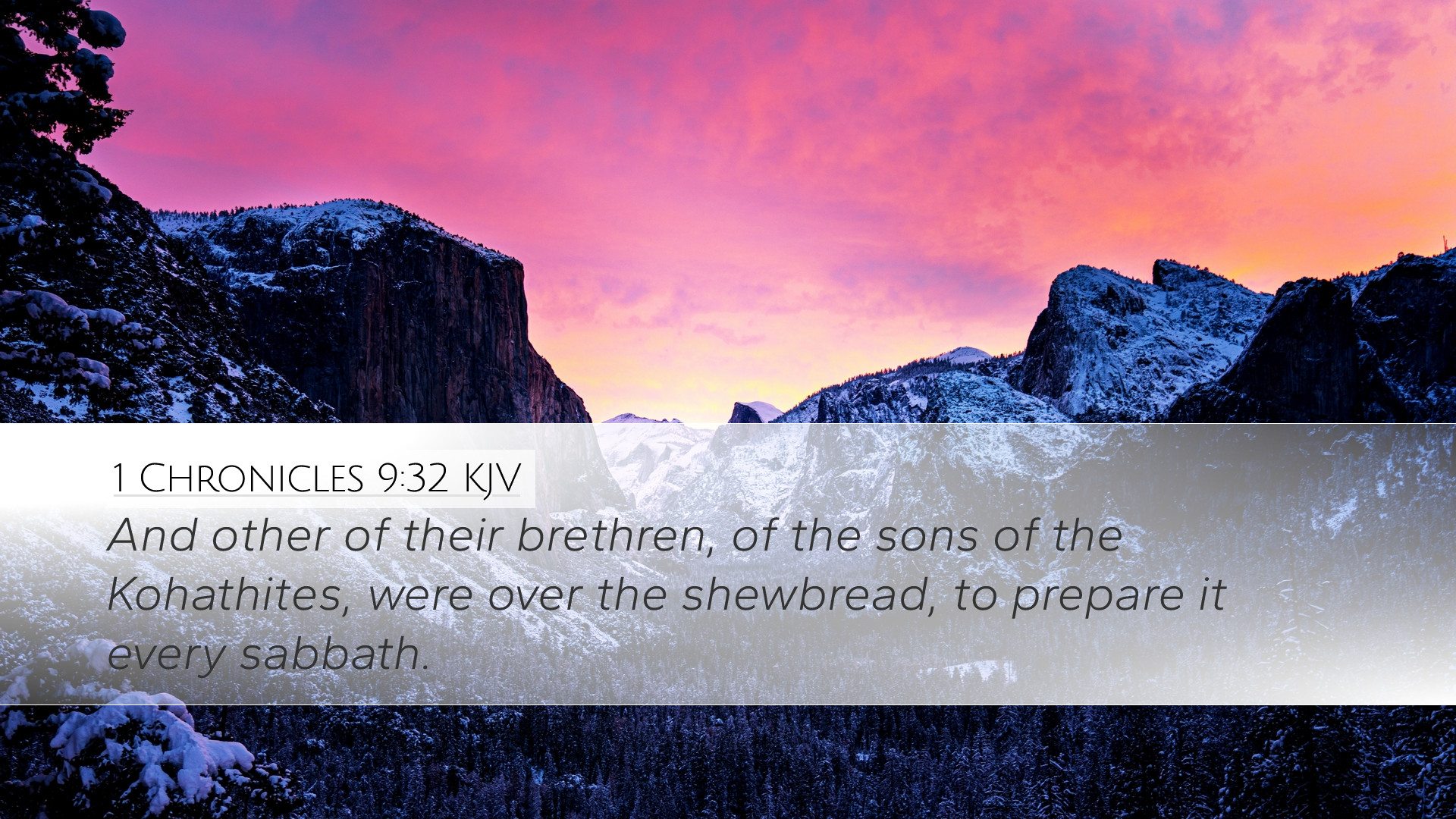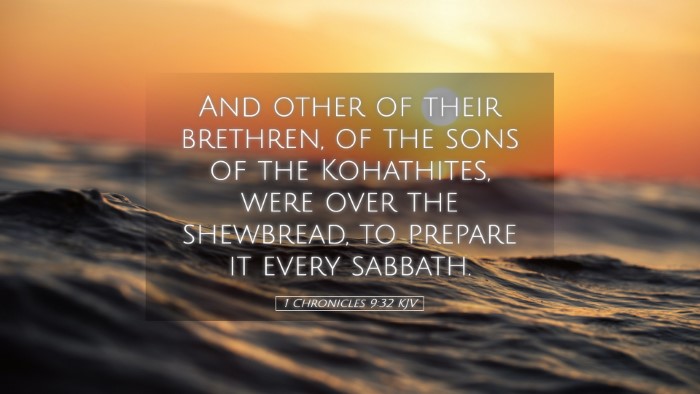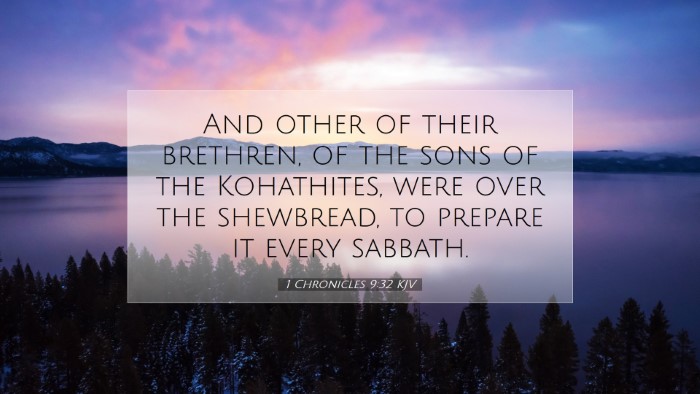Commentary on 1 Chronicles 9:32
Verse Reference: 1 Chronicles 9:32 - "And other of their brethren, of the sons of the Kohathites, were over the shewbread, to prepare it every sabbath."
Introduction
This verse, nestled within the genealogical and organizational records of the Levites, underscores the ritual responsibilities assigned to the Kohathite descendants concerning the shewbread. It serves as a testament to the meticulous nature of cultic duties in ancient Israel and highlights the importance of proper worship and order in the temple service.
Historical Context
The chronicler's work comes at a critical juncture for the returning exiles from Babylon, seeking to re-establish their identity and accountability within the worship of Yahweh. The verses leading to and following 1 Chronicles 9:32 form a part of a larger narrative aimed at organizing the temple service and its ministers.
Role of the Kohathites
The Kohathites, one of the three major branches of the Levites, played a vital role in the temple sacrificial system. Their responsibilities often included caring for the most sacred items of the tabernacle and later, the temple. Matthew Henry elucidates that their duty regarding the shewbread was significant, as this bread symbolized the divine sustenance provided by God to His people.
The Shewbread
Definitions and Symbolisms
The shewbread, or "bread of the Presence," was a sacred offering that consisted of twelve loaves placed on a table in the holy place of the tabernacle. These loaves were renewed every Sabbath, symbolizing God’s continual presence and provision.
The Ritual Significance
Albert Barnes notes the ritual importance of the shewbread: it not only represented physical sustenance but also bore spiritual significance, reminding the Israelites of their covenant relationship with God. The act of preparing the shewbread was a continuous worship practice that reinforced this bond, reflecting deep reverence and obedience to God’s commandments.
Responsibilities and Order
The mention of the Kohathites as responsible for preparing the shewbread indicates a structured approach to worship, emphasizing that proper order is necessary in matters of divine worship. Adam Clarke points out that this structured system was designed to remove chaos from worship practices, highlighting the seriousness with which God regarded liturgical duties.
Implications for Today’s Ministry
For pastors and church leaders today, this passage encourages a careful, respectful, and organized approach to church worship practices. It emphasizes the need for ministry responsibilities to be well-defined and adhered to, ensuring that all acts of service, whether in preaching, teaching, or worship, are done in a manner that glorifies God.
Spiritual Applications
- Symbolism of Presence: Just as the shewbread represented God's presence among His people, modern believers must recognize that the church is called to reflect God's presence in the world.
- Provision and Sustenance: The preparation of the shewbread reminds believers of God's provision not only in physical aspects but in spiritual nourishment through His Word.
- Orderliness in Worship: The importance of structure in worship can serve as a model for contemporary church practices, reinforcing the idea that excellence in service matters to God.
Conclusion
1 Chronicles 9:32 may seem like a minor detail in genealogical accounts, but it reveals profound truths about God's expectations for worship and service. Through diligent and orderly preparation of the shewbread, the Kohathites honored God, reflecting the covenant relationship of Israel and teaching modern believers about their responsibilities in worship. Thus, this verse calls for the church to strive for excellence and intentionality in every aspect of ministry, ensuring that all activities are dedicated to the glory of God.


